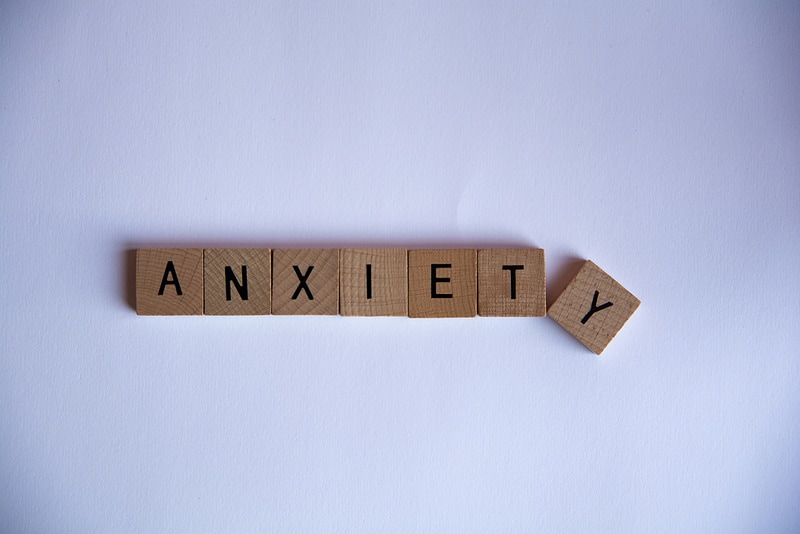|
By Prerana Chatty, Medical Student at Rutgers Robert Wood Johnson Medical School
About a year ago, I experienced what I now believe was my first physical (and emotional) breakdown. I was beginning my senior year of college and was in the thick of the medical school application process. I wasn’t eating right, I never exercised, I barely got enough sleep, and I didn’t have time to process it, but I was always stressed. I developed a severe pain in my left shoulder, then an abdominal pain, then headaches, so on and so forth. Failing to realize that my body’s “breakdown” was a result of my poor self-care, I fell victim to another demon – illness anxiety. Many of us are impacted by illness anxiety to a certain extent. Many of us are guilty of playing doctor on Web MD when we have strange symptoms or mulling over our existences when we get sick, but this was a heightened level of anxiety I had not experienced before. I visited doctor after doctor, all of whom told me I was in good health, but with each increasing visit, I grew more and more convinced that something was seriously wrong with me and that the doctors weren’t catching it. I was convinced my neck/arm pain was a neuropathy, that my abdominal pain was some kind of cancer, that my headaches were related too. As illogical as that is, anxiety doesn’t make sense –– and as I quickly learned, knowing about medicine does not make it any easier. While my symptoms eventually resolved themselves, and while I improved my self-care routine, the illness anxiety persisted. This physical breakdown had happened once, and in my mind, it could easily happen again. I wondered if medical school would worsen my anxiety. I knew that medicine was the right career for me because of my love of biology and my desire to improve peoples’ lives, but I was worried that being surrounded by sickness all the time would be too difficult to handle. In fact, I’ve found the opposite to be true, and today, I believe I finally understand why. The topic of death has come up quite frequently in my first few weeks of school, and as heavy as it is, it is an inevitable topic of discussion. And it wasn’t until a few weeks ago until my professor, after calmly reminding us that “we are all dying the instant we’re born,” asked me if I was afraid of dying that I realized the answer was “no.” So I had to ask myself: if you’re not afraid of dying, what are you actually afraid of? What is it about illness that is so frightening if it’s not death? And I realized that the answer was uncertainty. Illness and death are uncomfortable topics of conversation and I feel that the main reason for that is that they reveal our lack of control and the unpredictability that govern our lives. Illness and death make us feel powerless because they are all consuming, mysterious, and inevitable. And what I was (and am) truly afraid of was the notion that something horrible could happen to me that I have no control over. I still struggle deeply with that fear – but today, I took a huge step forward because of the visit of a patient with Huntington’s Disease and her family. Huntington’s Disease is a highly progressive neurological disorder that one patient has described as “having Alzheimer’s, Parkinson’s, and Bipolar diseases all wrapped up into one.” Patients experience cognitive and behavioral changes (which can be extremely difficult for the family, as they notice the personality of their loved one change), impulsive behavior, impaired psychomotor abilities, dysphagia (trouble swallowing), and then progressively, dementia, and prolonged neurodegeneration, to name a few. While the presentation of Huntington’s varies in each patient, it is always severe and almost always fatal 15-20 years after the age of onset. The age of onset varies – it can be as early as 8 and as late as 60. Even worse, Huntington’s Disease is an autosomal dominant disorder, which means that individual with the disease have a 50% chance of passing it on to their children. This can lead to emotionally complex decisions regarding genetic testing when a patient is diagnosed with Huntington’s Disease, especially if the patient presents with symptoms later in life. When a parent is diagnosed with Huntington’s, for example, difficult decisions have to be made about whether their siblings and children should be tested. Huntington’s is essentially an accelerated death sentence as we do not currently have a cure, so the question arises: what is the benefit of knowing how you’re going to die? But what would change if you could prepare for your death – what would you gain from your life? The father of the patient that visited us (I’ll call her Ellen for the sake of this post) died from Huntington’s Disease and Ellen had to make a difficult decision when she turned eighteen as to whether or not she wanted to be tested. She ultimately decided to be tested, and watching her mother’s pain and her pain when they learned that she tested positive for the disease was heart-wrenching. It made me ask myself: If you know you’re going to die, how do you keep living? And that is exactly what is so amazing about Ellen – she kept living. In an essay she wrote that her mother read aloud to us, she reminded us that she is living with Huntington’s Disease and that she is determined to make as many memories as possible and to live her life in as positive of a way as she can in spite of her illness. It’s a form of strength I wish I could emulate and that I have an incredible amount of respect for. The love she has for her family and her commitment to take the high road in spite of the knowledge of her terrible illness reminded me that the meaningful moments we create are the value we find in all of our lives. Reflecting on my own anxiety, I realized that I can’t live with the fear of uncertainty. The harsh reality is that we’re all going to die. Some of us get luckier than others, but we’re all going to get sick. We don’t know how or when, but if we live in fear of that reality, we don’t really live at all. If Ellen is able to live an amazing life in spite of her illness, we all can. Unpredictability is a truth that governs our lives – but that doesn’t mean we have to succumb to it. I know I will still struggle with anxiety. And I know that I will still be afraid of the uncertainty that is such a reality all of our lives, but I also know that I will think of Ellen and the importance of extracting as many positive and meaningful moments out of my life as possible. We’re all dying, but we are so fortunate that we get to live. So to this amazing patient and her family – thank you for helping me to see light in what could be a situation defined entirely by darkness. We live in moments, and today, you created an incredible one for me. For more information about Huntington’s Disease, visit: What is HD? 
About the Author
Prerana Chatty is a medical student at Rutgers Robert Wood Johnson Medical School in New Jersey and recently graduated from Cornell University with a major in Biological Sciences and a minor in Creative Writing. She is greatly interested in narrative medicine and her primary creative medium is poetry. She is a strong advocate for reflection and humanism in the medical field. You can contact her at [email protected] Comments? Leave them below!
0 Comments
Your comment will be posted after it is approved.
Leave a Reply. |
LIFESTYLE BLOGRead our lifestyle advice, written exclusively for pre-professional women in science and engineering. From advice about fashion, work and family balance, self, wellness, and money, we've got you covered! |
The Scientista Foundation, Inc. All Rights Reserved © 2011-2021 | Based in NY | [email protected]
The Network for Pre-Professional Women in Science and Engineering
The Scientista Foundation is a registered 501(c)(3) -- Donate!
The Network for Pre-Professional Women in Science and Engineering
The Scientista Foundation is a registered 501(c)(3) -- Donate!

